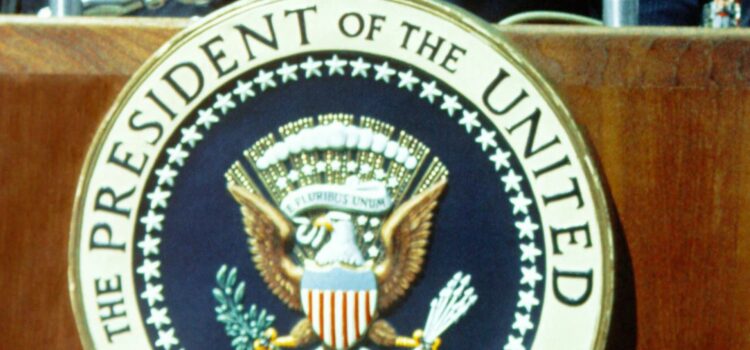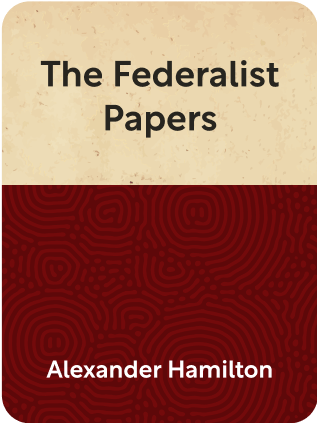

This article is an excerpt from the Shortform summary of "The Federalist Papers" by Alexander Hamilton. Shortform has the world's best summaries of books you should be reading.
Like this article? Sign up for a free trial here .
What are the powers of the Executive Branch? What is said about executive powers in the Constitution?
The Executive Branch is made up of the President and agencies. The President controls the powers of the executive branch.
Read more about the powers of the Executive Branch of government as explained in The Federalist Papers.
The Executive Branch and the President
The presidency, the chief of the Executive Branch of government, was perhaps the most controversial and hotly contested feature of the Constitution. The president is given the following executive powers in the Constitution:
- Veto bills passed by both houses of Congress, thus serving as an important check on legislative power;
- Propose legislation;
- Negotiate treaties;
- Nominate executive officials and federal judges;
- Make temporary appointments when Congress was not in session;
- Adjourn Congress when it could not agree on a time of adjournment;
- Issue pardons, except in cases of impeachment; and
- Direct and oversee the armed forces as commander-in-chief
Anti-Federalist critics argued that these powers rendered the office tantamount to a monarch, a supreme and unaccountable despot dressed up in republican garb. But this was patently false. The President was nothing like a king—and attempts to mischaracterize the office as such were nothing more than demagogic efforts by the Constitution’s opponents to mislead the public.
A Chief Magistrate, Not a King
Despite the considerable powers of the Executive Branch of government, the office’s authority was heavily restricted by the provisions of the Constitution. Unlike a monarchy, the presidency was not a hereditary office conferred upon the incumbent by right of birth and held for life; instead, the president was elected (albeit indirectly) by the people through the Electoral College and served a fixed term of four years. Presidents could run for reelection as many times as they wished, but, unlike a king, would face political competition for their office.
The specific executive powers in the Constitution, meanwhile, differed in important respects from those of European monarchs. The king of Great Britain’s veto was final; that of the president could be overridden by a two-thirds majority vote in each house of Congress. The veto was nevertheless an important check on the power of the legislative branch, one that would prevent Congress from passing bad laws or waging constitutional warfare against the other branches.
Publius reckoned, however, that presidential vetoes would be rare. Even the all-powerful British monarch almost never invoked his absolute veto power over laws passed by both houses of Parliament. It was unlikely, therefore, that a president, operating under much greater institutional constraints, would be more aggressive in his use of this power. Indeed, critics were more likely to accuse the President of vetoing bills too infrequently.
Although the President could negotiate treaties on his or her sole authority, all treaties needed to receive the approval of the Senate before becoming law. Kings faced no such check on their power in this regard.
Similarly, all presidential appointments had to be confirmed by the Senate. The king, meanwhile, could freely appoint favorites and cronies to councils of state and even confer lands and titles of hereditary nobility without Parliament’s assent.
While the President could adjourn Congress, this could only be done when both houses of Congress failed to reach agreement about when to adjourn. On no other occasion could the president exercise such a power. By contrast, the British monarch could prorogue Parliament at will.
The presidential pardon power was likewise, constrained by the Constitution. Importantly, the president could not issue pardons in cases of impeachment. This meant that he would not be able to inoculate his co-conspirators in high crimes and misdemeanors for which they had been duly punished by Congress. But it was nevertheless important to vest the pardon power in the executive branch. The legislative branch, composed of representatives of many parties and factions, would be less able to use the pardon power fairly, especially in situations of national insurrection. A single, more sober-minded executive would be able to wield their pardons more justly, wisely, and effectively.
Lastly, while the president would be commander-in-chief of the armed forces, his power to use them would be greatly constrained by Congress. The president would have no power to raise armies, levy the taxes necessary to pay for them, and, most importantly, declare war without Congress.
Hardly a monarch, the powers of and constraints upon the president were broadly similar to those of state governors all across the country, including New York and Massachusetts. A robust system of checks and balances ensured that the presidency would not become too powerful.

———End of Preview———
Like what you just read? Read the rest of the world's best summary of Alexander Hamilton's "The Federalist Papers" at Shortform .
Here's what you'll find in our full The Federalist Papers summary :
- The genius of the founding fathers in how they designed the United States Constitution
- Why it was critical for the United States to form a union rather than stay separated as colonies
- How Alexander Hamilton anticipated social issues that are still relevant today






